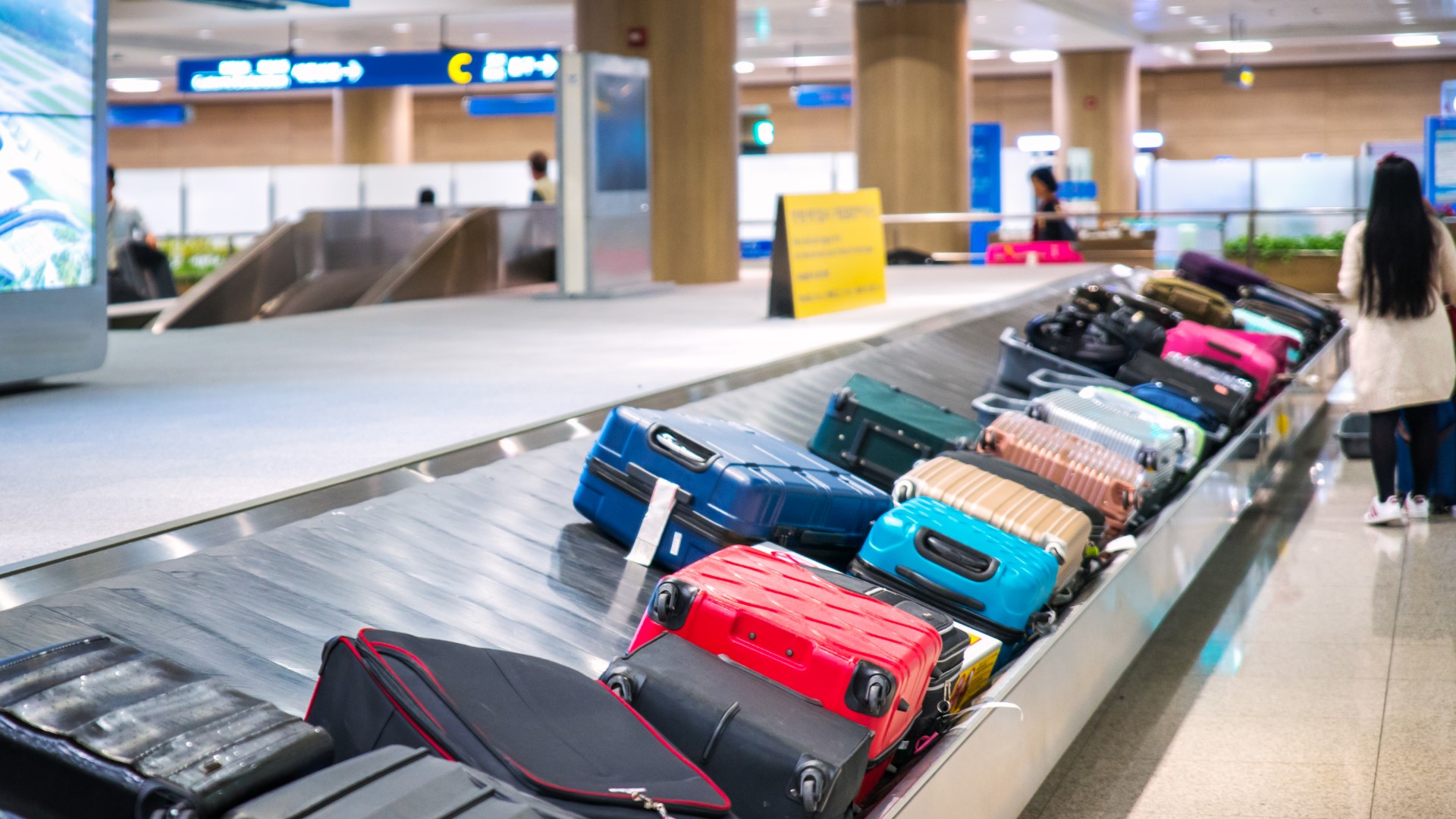GRAND RAPIDS, Mich. — With Summer travel season ramping up, the last place travelers want to get stuck is in airport security. That’s why TSA experts at Gerald R. Ford International Airport gave a demonstration on what is and isn’t allowed on a plane.
Ross Faasee, a TSA worker at the airport, has seen just about everything try to come through the gates.
“The craziest thing that I've seen between either carry on or checked bags is frozen squirrels, so someone had an entire bag of just frozen squirrels. No idea what they were traveling with it for, but it was very strange,” Faasee said.
The items on Faasse’s display table were a sample of prohibited items collected over the last six weeks at Ford International Airport. Faasee said his TSA team probably sees hundreds of thousands of them over a full year.
He says the common prohibited item passengers are stopped for are liquids. Liquids must be less than 3.4 ounces and in a single, quart-sized bag. Each passenger is limited to one quart-sized bag in their carry-on.
Knives are also a chart topper on the list. Knives may be taken on a flight, but they must be stored in a passenger’s checked bag, regardless of the size.
However, small tools and scissors can be packed in a carry-on, so long as they meet size standards. Tools over seven inches long must be packed in checked bags, along with scissors that are over 4 inches from their pivot point.
Safety items like pepper spray and dog or cat eyes are also prohibited from carry on luggage and must be packed in a checked bag.
“We understand why you want them for self defense, but for obvious reasons, we don’t want those items to be accessible on board an aircraft,” said Mark Howell TSA’s Regional Spokesperson.
Guns and fake weapons are immediate cause for concern at airports and are treated accordingly.
"It does have the ability to delay your travels, your traveling companions, everybody else through the checkpoint. It can lead to checkpoint closures and local law enforcement as well,” Faasee said.
Howell says TSA doesn’t confiscate items.
“We always give people the choice to get rid of items. We call it surrendered items.”
Surrendering an item gives it to TSA who will pass it on to the Michigan State Surplus Office.
“They’ll dispose of some of them, and they’ll re-sell the others, with the funds going back to the state,” Howell said.
However, TSA workers will give you the option to move your items before boarding.
“That could be going and putting it in a check bag, if you parked at the airport, you could take it to your car. If somebody brought you to the airport you could hand it off to them…In a lot of airports, they have mailers where you can actually mail the item back to yourself if it’s allowed in postal mail,” Howell said.
However, he adds that most people choose to surrender their items due to the time crunch to get board a flight.
If you surrender it, you can’t get it back. You’re going to have to try to find it in the mass of items that get turned in,” he said.
Howell recommends that everyone do a 5-minute check before they head to the airport, using TSA’s online resources.
►Make it easy to keep up to date with more stories like this. Download the 13 ON YOUR SIDE app now.
Have a news tip? Email news@13onyourside.com, visit our Facebook page or Twitter.

